#exxonmobil
Explore tagged Tumblr posts
Text
California sued ExxonMobil Monday, alleging the oil giant deceived the public for half a century by promising that the plastics it produced would be recycled. Attorney General Rob Bonta’s office said that less than 5% of plastic is recycled into another plastic product in the U.S. even though the items are labeled as “recyclable.” As a result, landfills and oceans are filled with plastic waste, creating a global pollution crisis, while consumers diligently place plastic water bottles and other containers into recycling bins, the lawsuit alleges. “‘Buy as much as you want, no problem, it’ll be recycled,’ they say. Lies, and they aim to make us feel less guilty about our waste if we recycle it,” said Bonta, a Democrat, at a virtual news conference, where he was joined by representatives of environmental groups that filed a separate but similar lawsuit Monday, also in San Francisco County Superior Court. “The end goal is to drive people to buy, buy, buy and to drive ExxonMobil’s profits up, up, up,” he said. ExxonMobil, one of the world’s largest producers of plastics, blamed California for its flawed recycling system. “For decades, California officials have known their recycling system isn’t effective. They failed to act, and now they seek to blame others. Instead of suing us, they could have worked with us to fix the problem and keep plastic out of landfills,” Lauren Kight, spokesperson for ExxonMobil, said in an email. Dozens of U.S. municipalities as well as eight states and Washington, D.C., have sued oil and gas companies in recent years over their role in climate change, according to the Center for Climate Integrity. Those are still making their way through courts, including a lawsuit filed by California a year ago against some of the world’s largest oil and gas companies, claiming they deceived the public about the risks of fossil fuels.
87 notes
·
View notes
Text
https://www.npr.org/2024/09/23/nx-s1-5123619/california-sues-exxonmobil-for-misleading-public-on-plastic-recycling
#california#plastic pollution#plastic recycling#recycling#exxonmobil#usa#plastic litigation#plastic#plastics
82 notes
·
View notes
Text

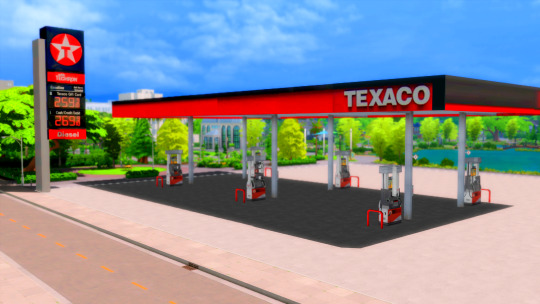

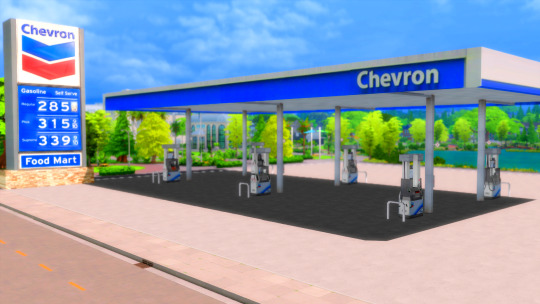
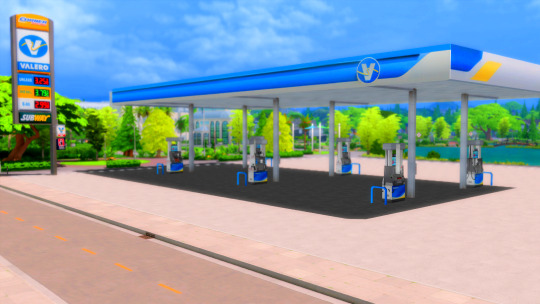
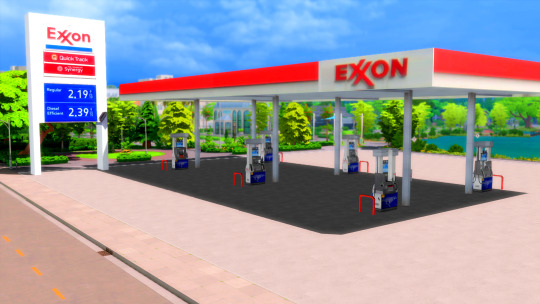
Deco Gas Stations CC
NOW PUBLIC!!
Shell Fuel & Mart
Deco Gas Station (6 Swatches)
Can be paired with Gas Station Signs CC
Download: Patreon
#ts4cc#sims 4 custom content#ts4#sims 4 simblr#ts4 simblr#the sims 4#sims 4 cc#sims 4#simblr#the sims cc#deco cc#base game cc#exxonmobil#valero#texaco#shell oil#gas station
544 notes
·
View notes
Text

Be sure to thank the Shareholders
#Be sure to thank the Shareholders#spain#valencia#shareholders#ausgov#politas#australia#climate change#global warming#science#co2 emissions#co2#pollution#auspol#tasgov#taspol#fuck neoliberals#neoliberal capitalism#anthony albanese#albanese government#climate crisis#climate action#climate justice#climate catastrophe#shell#bp#exxonmobil#exxon#mobil#pollutants
51 notes
·
View notes
Text
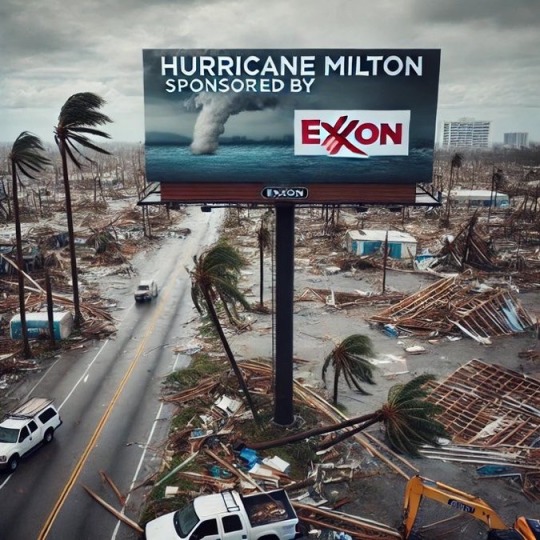
23 notes
·
View notes
Text
Lisa Needham at Daily Kos:
Conservative Texas District Judge Reed O’Connor took time out of his packed schedule of trying to destroy the Affordable Care Act to hand down a genuinely unhinged decision. According to O’Connor, American Airlines violated federal law by offering 401(k) plans that included funds managed by investment companies with environmental, social, and corporate governance (ESG) goals. It’s the newest—and dumbest—front in the war on “woke.” The Employee Retirement Security Act of 1974 (ERISA) requires people who manage retirement investments to act in the best interests of their participants. This is a good thing! It means that fund managers can’t put their own financial interests first and must diversify a fund’s investments to minimize the risk of significant losses. This lawsuit arose when a former pilot sued American Airlines in 2023, saying it violated ERISA by mismanaging 401(k) funds. Was it because somehow the company lined its pockets with the hard-earned cash of retirees? Nope. Was it because the company’s 401(k) funds were performing terribly? Nope. It was because American Airlines hired BlackRock, the world’s largest asset manager that oversees trillions of investment dollars, to manage its retirement funds. Several years ago, BlackRock started positioning itself as a leader in its focus on environmental sustainability in investing. In 2021, BlackRock, then the second-largest holder of Exxon stock, cast a proxy vote on behalf of activist investors who wanted climate-conscious directors on the corporation’s board. Lest this make it sound like BlackRock was just one step away from partnering with Greta Thunberg or something, the company still has billions invested in fossil fuels and runs the world’s largest Bitcoin fund. It’s a fund manager, not Santa Claus. BlackRock also spent the last year retreating from its previous support for climate activism, which is unsurprising given that 11 red states recently sued over it. The usual suspects, like Florida, Louisiana, and Texas, have also pulled state assets out of BlackRock, but the American Airlines lawsuit was the first successful attack on ESG investing in 401(k) plans.
[...] Conservatives are treating the elimination of ESG and DEI efforts as if the boot of government is finally off their backs, allowing corporations to finally unleash their true potential. But these sorts of actions—committing to net zero emissions and ensuring diversity and equity in the workforce—weren’t the scary, woke socialist ideas of Barack Obama, Joe Biden, or Nancy Pelosi. Rather, they’re actions that corporations took in an attempt to make themselves appear more attractive within a capitalist, free-market framework. But conservatives are no longer interested in a free market—hence the screaming about “woke capitalism.” With Trump back in office, they’ll get to use the heavy hand of government to reward only the corporations that share Trump’s climate-denying, white supremacist, anti-trans views.
The right’s war on ESG and DEI will have disastrous consequences.
14 notes
·
View notes
Text
One of the world's largest oil companies is preparing to drill an exploratory deepwater oil well about 500 kilometres off the eastern coast of Newfoundland. ExxonMobil says the Stena Drillmax ship will drill a single well, which the company is calling Persephone, in about 3,000 metres of water. The well will be drilled in an area of the seabed called the Orphan Basin, which is north of the Flemish Pass Basin, where Equinor is considering developing the country's first deepwater oil production operation, called Bay du Nord.
Continue Reading.
#Offshore Oil#exxonmobil#Big Oil#newfoundland and labrador#Newfoundland#cdnpoli#canada#canadian politics#canadian news
31 notes
·
View notes
Text
“A yearslong U.S. Justice Department investigation of a global hacking campaign that targeted prominent American climate activists took a turn in a London court this week amid an allegation that the hacking was ordered by a lobbying firm working for ExxonMobil. Both the lobbying firm and ExxonMobil have denied any awareness of or involvement with alleged hacking.”
6 notes
·
View notes
Text
Gas Station Stream of Consciousness Post
Gas Stations as Liminal Spaces
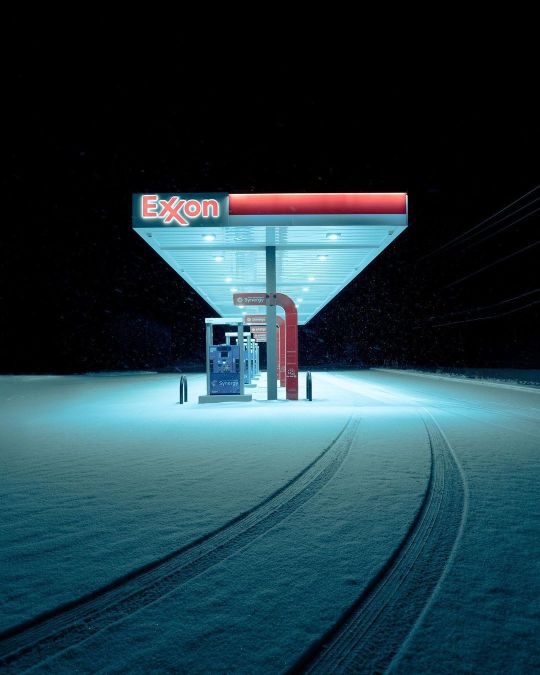
I've had quite a few hyperfixations in my day - ATMs, laundry detergents, credit cards - so my current one pertaining to gas stations is fitting considering my affinity for liminal spaces and the dedication of this blog to them. Liminal spaces are transitory in nature, hence their portrayal in online circles through photos of carpeted hallways, illuminated stairwells, dark roads, and backrooms, among other transitional points.

Gas stations are posted online as well; images of their fuel pumps or neon signage photographed through a rainy car window communicate their liminality and the universal experiences they provide to all of society. Perhaps they are the ultimate specimen of a liminal space. The machines they are created for, automobiles and tractor trailers alike, themselves are tools for motion, vestibules that enable travel and shipment across long distances at high speeds. Cars and roads are liminal spaces, albeit in different formats, and gas stations serve as their lighthouses. Vehicles at filling stations, therefore, are in a sense liminal spaces within liminal spaces within liminal spaces.
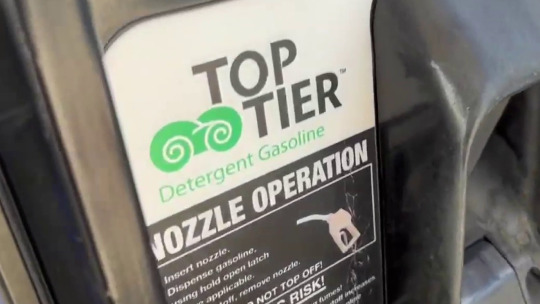
The uniqueness of a gas station as a liminal space, however, is its intersection with the economics and aesthetics of capitalism. Gasoline (and diesel fuel) is a commodity, downstream from crude oil, merely differentiated by octane ratings. Some argue that minute distinctions between agents, detergents, and additives make some brands better than others. Indeed, fuels that are approved by the Top Tier program, sponsored by automakers, have been shown to improve engine cleanliness and performance, but this classification does not prefer specific refiners over others; it is simply a standard. To a consumer, Top Tier fuels are themselves still interchangeable commodities within the wider gasoline commodity market.
The Economics of Gas Stations

The market that gas stations serve is characterized by inelastic demand, with customers who reckon with prices that fluctuate day in and day out. This is not to say that consumer behavior does not change with fuel prices. It has been observed that as prices rise, consumers are more eager to find the cheapest gas, but when prices fall, drivers are less selective with where they pump and are just happy to fill up at a lower price than last week. In response, gas stations lower their prices at a slower rate than when increasing prices, allowing for higher profit margins when wholesale prices fall. This has been dubbed the "rockets and feathers" phenomenon.

When portrayed as liminal spaces, gas stations are most often depicted at night, places of solitude where one may also enter the adjacent convenience store and encounter a fellow individual who isn't asleep, the modern day lightkeeper. The mart that resides at the backcourt of a gas station is known to sell goods at higher prices than a supermarket, simultaneously taking advantage of a captive customer, convenient location, and making up for the inefficiencies of a smaller operation. It may come as no surprise, then, that gas stations barely make any money from fuel sales and earn their bulk through C-store sales. This is a gripe I have with our economic system. Business is gamified, and in many cases the trade of certain goods and services, called loss leaders, is not an independent operation and is subsidized by the success of another division of a business, a strategy inherently more feasible for larger companies that have greater scale to execute it.
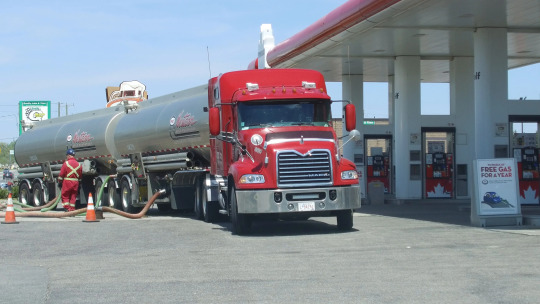
Nevertheless, most gas station owners, whether they have just one or hundreds of sites, find this method fruitful. Even though most gas stations in the US sell one of a handful of national brands, they operate on a branded reseller, or dealer, model, with oil companies themselves generally not taking part in the operations of stations that sell their fuels. The giants do still often have the most leverage and margin in the business, with the ability to set the wholesale price for the distributor, which sells at a markup to the station owner, which in turn will normally make the least profit in the chain when selling to the end customer at the pump. This kind of horizontal integration that involves many parties lacks the synergies and efficiencies of vertical integration that are so applauded by capitalists, but ends up being the most profitable for firms like ExxonMobil, who only extract and refine oil, and on the other end of the chain merely license their recognizable brands to the resellers through purchasing agreements. Furthermore, in recent years, independent dealers have sold their businesses to larger branded resellers, in many cases the ones from whom they had been buying their fuel.
A Word on ExxonMobil's Branding Potential
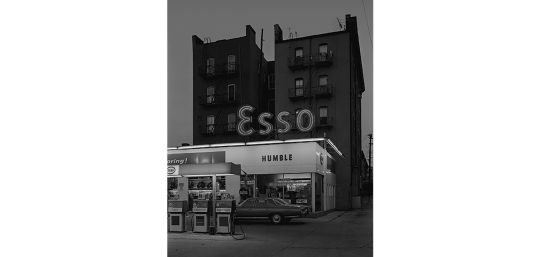
The largest publicly traded oil company in the world is Exxon Mobil Corporation. It is a direct descendent of the Rockefeller monopoly, Standard Oil, which was broken up in 1911 into 34 companies, the largest of which was Jersey Standard, which became Exxon in 1973. This title was generated by a computer as the most appealing replacement name to be used nationwide to unify the Humble, Enco, and Esso brands, decades before AI was spoken of. The latter brand is still used outside of the United States for marketing, arising from the phonetic pronunciation of the initials of Standard Oil. In 1999, Exxon and Mobil merged, and the combined company to this day markets under separate brands. Exxon is more narrowly used, to brand fuel in the United States, while Mobil has remained a motor oil and industrial lubricant brand, as well as a fuel brand in multiple countries.

Mobil originated in 1866 as the Vacuum Oil Company, which first used the current brand name for Mobiloil, and later Mobilgas and Mobilubricant products, with the prefix simply short for "automobile". Over time, Mobil became the corporation's primary identity, with its official name change to Mobil Oil Corporation taking place in 1966. Its updated wordmark with a signature red O was designed by the agency Chermayeff & Geismar, and the company's image for service stations was conceived by architect Eliot Noyes. New gas stations featured distinctive circular canopies over the pumps, and the company's recognizable pegasus logo was prominently on display for motorists.

I take issue with the deyassification of the brand's image over time. As costs were cut and uniformity took over, rectangular canopies were constructed in place of the special ones designed by Noyes that resembled large mushrooms. The pegasus remained a prominent brand icon, but the Mobil wordmark took precedence, which I personally believe to be an error in judgement. This disregard for the pegasus paved the way for its complete erasure in 2016 with the introduction of ExxonMobil's "Synergy" brand for its fuel. The mythical creature is now much smaller and appears only at the top right corner of pumps at Mobil gas stations, if at all.

Even into the 90s and the 21st century the Pegasus had its place in Mobil's marketing. In 1997, the company introduced its Speedpass keytag, which was revolutionary for its time and used RFID technology, akin to mobile payments today, to allow drivers to get gas without entering the store or swiping a card. When a Speedpass would be successfully processed, the pegasus on the gas pump would light up red.
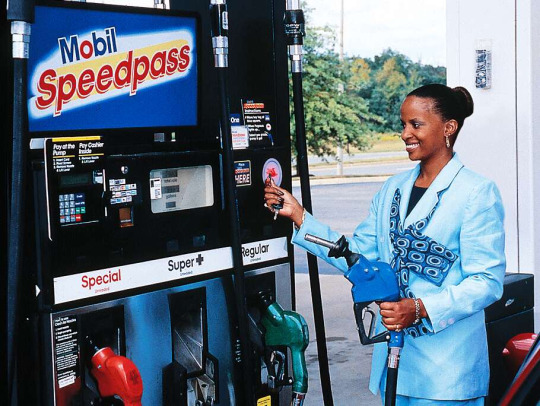
When Exxon and Mobil merged in 1999, the former adopted the payment method too, with Exxon's less iconic tiger in place of the pegasus.

The program was discontinued in 2019 in favor of ExxonMobil's app, which is more secure since it processes payments through the internet rather than at the pump.
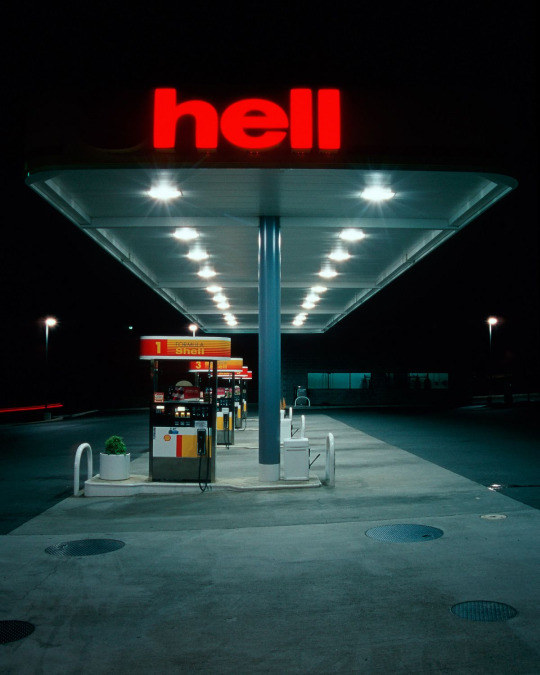
What Shell has done with its brand identity is what Mobil should've done for itself. The European company's logo was designed in 1969 by Raymond Loewy, and is a worth contender for the "And Yet a Trace of the True Self Exists in the False Self" meme. In recent years, Shell went all in on its graphic, while Mobil's pegasus flew away. I choose to believe that the company chose to rebrand its stations in order to prevent the malfunction in the above image from happening.

ExxonMobil should have also discontinued the use of the less storied Exxon brand altogether, and simplifying its consumer-facing identity to just the global Mobil mark. Whatever, neither of the names are actual words. As a bonus, here is a Google map I put together of all 62 gas stations in Springfield, MA. This is my idea of fun. Thanks for reading to the end!
#exxonmobil#exxon#mobil#gas station#gas stations#liminal space#liminal spaces#liminal#liminalcore#liminal aesthetic#justice for pegasus#shell#corporations#capitalism#branding#marketing#standard oil#economics#gas#gasoline#fuel#oil companies
110 notes
·
View notes
Text
youtube
Ron Perlman's ExxonMobil ad. It's.. amazing.
13 notes
·
View notes
Text
...And the countersuit, because of course.
Exxon sues California AG, environmental groups over attacks on recycling efforts
5 notes
·
View notes
Text

Kamala Embraces Fossil Fuels: After All, Hurricanes Don’t Fuel Themselves!
#Kamala Embraces Fossil Fuels: After All#Hurricanes Don’t Fuel Themselves!#kamala harris#fossil fuels#hurricanes#global warming#pollution#co2 emissions#co2#extreme weather#oil#exxonmobil#exxon#mobil#bp#ausgov#politas#auspol#tasgov#taspol#australia#fuck neoliberals#neoliberal capitalism#anthony albanese#albanese government#climate change#climate crisis#climate action#climate justice#climate and environment
10 notes
·
View notes
Text
Excerpt from this story from Politico:
California Attorney General Rob Bonta accused Exxon Mobil in a lawsuit filed [September 23, 2024] of misleading the public about the environmental consequences of plastic production for decades.
The first-of-its-kind civil suit targets the world’s largest producer of chemical compounds that go into making plastic. Bonta, a Democrat, is pursuing some of the profits that he alleges resulted from Exxon’s promotion of single-use plastics as well as a court order for the company to stop what he says are misleading claims about the recyclability of plastics.
Exxon pointed the finger back at California.
“For decades, California officials have known their recycling system isn’t effective,” spokesperson Lauren Kight said in a statement. “They failed to act, and now they seek to blame others. Instead of suing us, they could have worked with us to fix the problem and keep plastic out of landfills.”
The suit in San Francisco County Superior Court, which comes a year after Bonta sued Exxon and four other oil majors seeking compensation for climate change damages, reflects California’s increasingly aggressive effort to hold the industry accountable for climate harms as the state transitions from fossil fuels to renewables.
The lawsuit accuses Exxon Mobil of violating state nuisance, natural resources, water pollution, false advertising and unfair competition laws. It seeks an injunction against “further pollution, impairment, and destruction, as well as to prevent Exxon Mobil from making any further false or misleading statements about plastics recycling and its plastics operations.”
9 notes
·
View notes
Text

#Oil#Weird#unusual#petrolium#crude oil#chevron#Oil sands#oil spill#drill baby drill#drilling rig#deepwater horizon#Kuwaiti oil fires#Chemicals#Ecosystems#Offshore oil platform#pipeline#exxonmobil#exxon#Exxon Valdez#clean up#spills#oil field#BP#OPEC
7 notes
·
View notes
Text
If we’re executing evil CEOs I have a list that we can all work off of.

Do Exxon Mobile next!
3 notes
·
View notes
Text


My original Sasha vs my pony version.....two cool alternate universes. imagine if they clashed ;)
#art#clip studio paint#digital art#wacom#clipstudiopaint#csp#oc#anime#beauty#mlpfim#anime and manga#mlp fim#mlp g4#mlp#mlp art#mlp oc#mlp fanart#my little pony#my litte pony friendship is magic#brony#my little brony#brony fandom#mylittlepony#tiger girl#tiger#tigerclaw#essos#esso#exxonmobil#exxon
4 notes
·
View notes